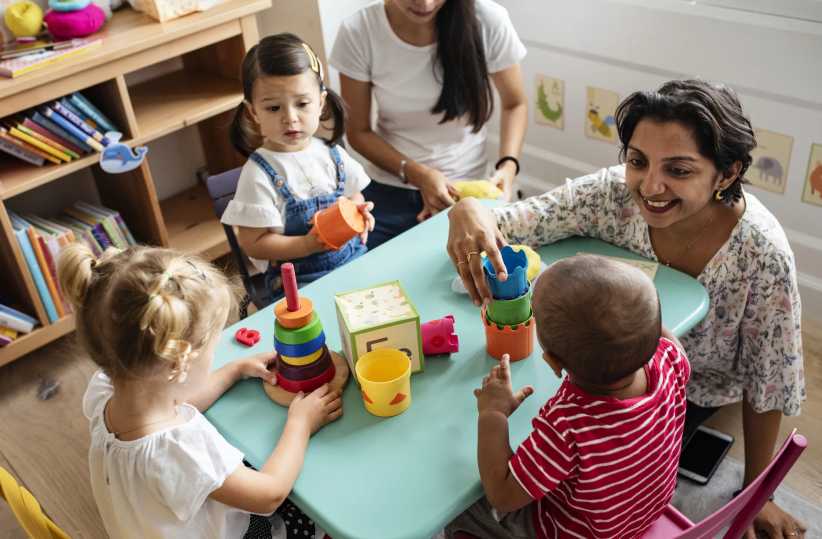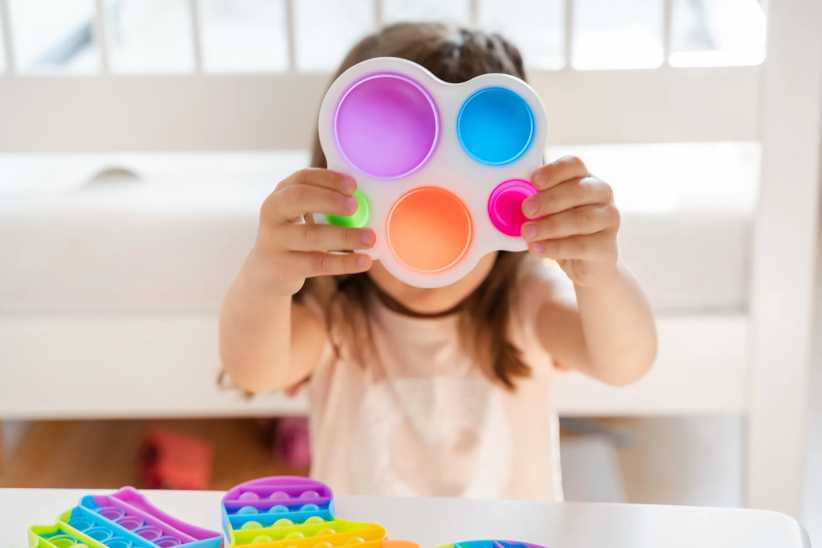
It’s that time of the year again: back-to-school season. You probably have your child’s first-day outfit neatly arranged, not to mention a brand new pair of shoes and a backpack full of new notebooks and pencils. I can still recall a few of my first-day outfits: dark wash Jordache jeans, Crayola backpack, and sparkling white Keds (red Reebok high tops another year).
But beyond the tangibles lies an even more important aspect of returning to school—namely the social and emotional skills that are increasingly vital in our very digital world. With less and less face-to-face interaction happening, it’s more important than ever that we teach these skills proactively. As Dr. Barbara Howard, Johns Hopkins School of Medicine assistant professor and behavior and development expert, emphasizes: “Social skills are necessary for school success.” These vital functions help children get along with peers, interact with teachers, make new friends, and—as I see firsthand in the classroom at socialsklz:-), a program that helps equip children with these skills—they also build self-confidence and self-esteem.
In fact, good social skills will not only help your children stand out in school but are also invaluable to their futures. According to a University of Loyola Chicago study, social and emotional learning (SEL) “promotes young people’s academic success, health, and well-being at the same time that it prevents a variety of problems, such as alcohol and drug use, violence, truancy, and bullying.” Besides doing better on standardized tests, students who received SEL instruction were better communicators and more concerned members of the community—and they ended up standing out in ways that will help them achieve goals and tackle challenges in the future.
As your children head back to school, here are a few ways in which you can prepare them for social and emotional success:
1. We’ll each make a first impression thousands of times during a lifetime, yet most of us never get a lesson on how to meet and greet. So prepare children to go back to school with the ability to make a great first impression on their teachers as well as on their classmates. At home, ask your child how they would like to come across to others. I’ve never had a student say “nervous, shy, or unhappy,” yet children often unknowingly come across that way. Show kids how to execute a firm handshake with the right hand—no “dead fish”—make good eye contact, smile, and show proper body language. (Of course, you’ll also want to review the more casual encounters that they will face with their peers.)
2. Unbeknownst to many students, a major classroom faux-pas is never addressing a teacher by his or her name. It might not seem like a big deal, but saying someone’s name is respectful and makes people feel good. Make sure your child knows the proper title—a Mr., Ms., or Mrs.?—and how to pronounce the teacher’s last name aloud. Explain the difference between Mrs., Miss, and Ms. (with a “zzzzz” sound). A teacher should never be addressed by his or her first name or a nickname, unless they specify otherwise.
3. Lunchroom behavior can leave a lasting impression. Even though the cafeteria is a far more casual setting than the dinner table, advise your children not to talk with their mouths full, chew loudly, or dissect food like a science project. Model your very own “school lunch” at home to get kids in cafeteria mode. Prepare an example lunch in brown paper bags for kids and review the dos and don’ts of the lunch table.
4. The playground is the perfect place to make friends, so teach your kids how to approach a new classmate with a friendly, interested smile and a fun, appropriate conversation starter. Have your kids prepare at least three questions to ask their classmates before school starts. Have fun with the exercise and role play as if you were the new classmate, and point out that one word answers don’t make for a great conversation! Sample conversation starters can include: What did you do over the summer? How was your weekend? What’s your favorite class?

5. “Bullying” is a word that kids hear over and over, and oftentimes they tune out when it’s brought up. Instead, try talking about thoughtfulness and empathy, which are key aspects to making and keeping friends. Every child who I’ve encountered agrees: Kids want to have friends! So share a few examples of how to be that type of friend and ask kids how they think they can be thoughtful. Additionally, it’s just as important to talk about how to handle sticky situations, like when other people aren’t acting thoughtful or empathetic (for example: leaving someone out, making fun of someone, and other mean behavior). Come up with a strategy so that your children know what to do if faced with a difficult encounter.
6. Adopting an appreciative attitude and expressing gratitude not only helps us make and keep friends, but doing so also make us happier people. Kids have the natural tendency to expect things and take things for granted, so it’s important to help them incorporate gratitude into everyday life. Recognizing others’ efforts and conveying thanks makes other people feel special, which in turn makes us feel good. Instead of the “please” and “thank you” that children are programmed to say, encourage your child to be more specific—for example, if a classmate helps them out with homework, your child can say, “Thank you for the help, I was having a hard time with that math problem.” At home, find time to share the things you appreciated during your day, or spread the positive attitude with “acts of kindness” like hiding surprise thank you notes in backpacks or lunch boxes.
7. Self-awareness is an essential skill for school and life—this is what enables a child to accurately judge their own performance and behavior and to respond appropriately to different social situations. It also helps them address their own feelings and how to manage feelings. Teach your child to monitor and to describe his or her own behavior, to observe him or herself, and to observe the effect their actions have on the world around them. If your child gets into a fight with a friend, for example, help him or her walk through what happened and discuss his or her role in the conflict. On the flipside, if your child does something nice for someone, you can say, “Look how happy you made your new friend by playing with her.”
Faye de Muyshondt is the founder of socialsklz:-),whose Back2School Bootcamps are currently running through the end of the month, and the author of the new book socialsklz:-) for SUCCESS:-), which Parents magazine described as “a cutting edge, must-read manual for raising polite and safe kids in the digital world.”













